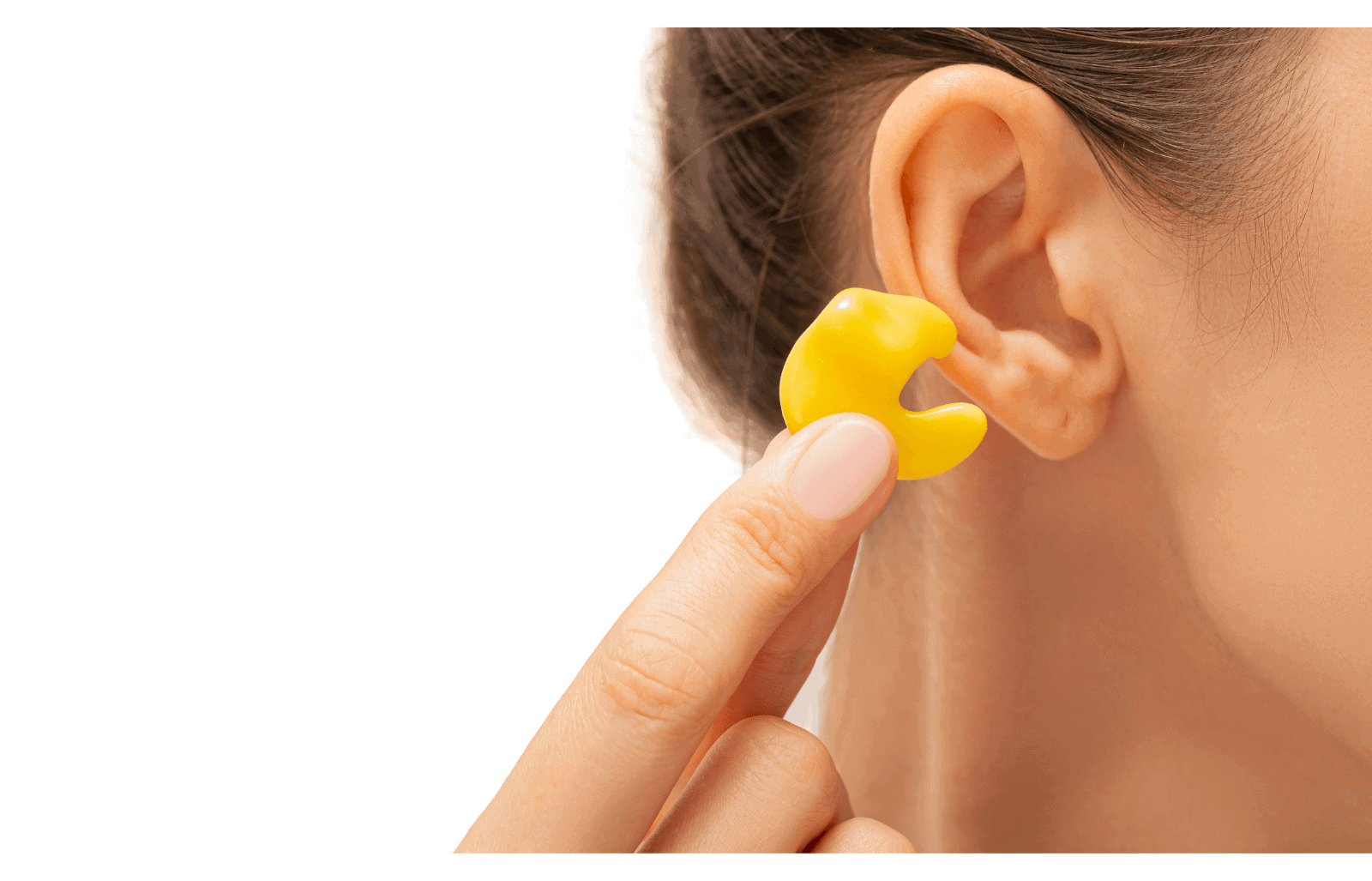Protecting your ears is an important part of your ear hygiene that should not be taken lightly. Earplugs are small devices that can help protect your ears from noise, water, and other things that can damage them. Although earplugs are small, they keep your hearing in good condition, protect you from potential damage, and ensure your ears are safe. So, when you go to a concert, take a swim, or step out for fun, the right pair of earplugs can be a game-changer.
Your earplugs determine the level of protection you get and it is vital to choose one with a Noise Reduction Rating (NRR). NRR is the level of noise reduction provided by earplugs and it is measured in decibels (dB). Earplugs with high NRR provide great noise reduction and vice versa. But it is advised that you get earplugs that appropriately meet your needs for sleeping, working, going to concerts, and doing all the activities you love.
Types of Earplugs You Should Know
There are various types of earplugs available, each designed for specific situations. It’s important to understand the differences to choose the right one for your needs.
If you’re going for affordability, the foam earplugs are your best bet because they are made from soft and expandable foam. These earplugs are common and designed to fit your ear canal and effectively block out noise. They are the best for reducing noise, studying, and sleeping. Swimmers and water sports enthusiasts looking for a waterproof seal should go for silicone earplugs, as they are reusable and made from flexible silicone material. These earplugs are useful for swimmers because of the comfort they bring when worn for long periods of time.
Those who work in places that expose them to loud sounds need flanged earplugs to protect their ears and still allow them to engage in conversations. These earplugs have multiple rings or flanges, that create a tight seal in the ear canal. In other news, custom-molded earplugs are made specially for your ears. They are ideal for long-term use and offer the best fit and comfort. Frequent travelers, industrial workers, and musicians often use these custom earplugs.
Choosing Earplugs for Specific Activities
A good night’s sleep cannot be overrated, and foam earplugs can help you achieve that by blocking out background noise. You should choose foam earplugs because they are comfortable and can provide you with the quiet needed to rest easily. On the other hand, silicone earplugs are the best if you’re a swimmer. They prevent water from entering your ears, even if you stay in the pool for hours. These earplugs are perfect for a hassle-free experience in the water.
To protect your ears from heavy sounds and noise, choose flanged or custom-molded earplugs. These earplugs allow you to have a good time as a musician and concertgoer by protecting your ears from loud music and ensuring you hear the music clearly.
As a frequent traveler who is always on the move, on trains, or on planes, custom-molded earplugs are the best for you. These earplugs can help reduce discomfort caused by changes in air pressure, block out ambient noise, and make your journey comfortable. However, students and workers can use either foam or silicone earplugs, as both work perfectly for creating a quiet environment and blocking out distractions.
Ensuring Proper Fit and Comfort
As you choose the right earplugs for your needs, ensure that they fit properly and provide comfort. Wearing earplugs that are too tight or loose can hinder optimal protection and cause discomfort. To properly fit your foam earplugs, roll them into a tiny cylinder, pop them into your ear canal, and hold them until they expand.
Wear your silicone earplugs by gently pushing them into your ear canal until they form a seal. Your flanged earplugs can be worn by gabbing the stem and inserting them into your ear canal to ensure the flanges create a snug seal. Since earplugs are worn for long periods, prioritize your comfort and try a different size if you feel discomfort or pain.
Maintaining Your Earplugs
Your earplugs’ longevity is assured if you take good care of them. Regularly wash your reusable earplugs with mild soap and water, and dry them completely before wearing them again. To store them, keep them in a safe, clean, and dry place to prevent them from contacting dirt and getting damaged. Get a new pair if your reusable earplugs start looking damaged or worn out, but if you have foam earplugs, toss them out after use and replace them often.
Earplugs will protect your ears from sounds that can harm them and ensure that your hearing is intact. However, you should seek guidance from hearing health professionals and schedule a hearing health exam if needed.


